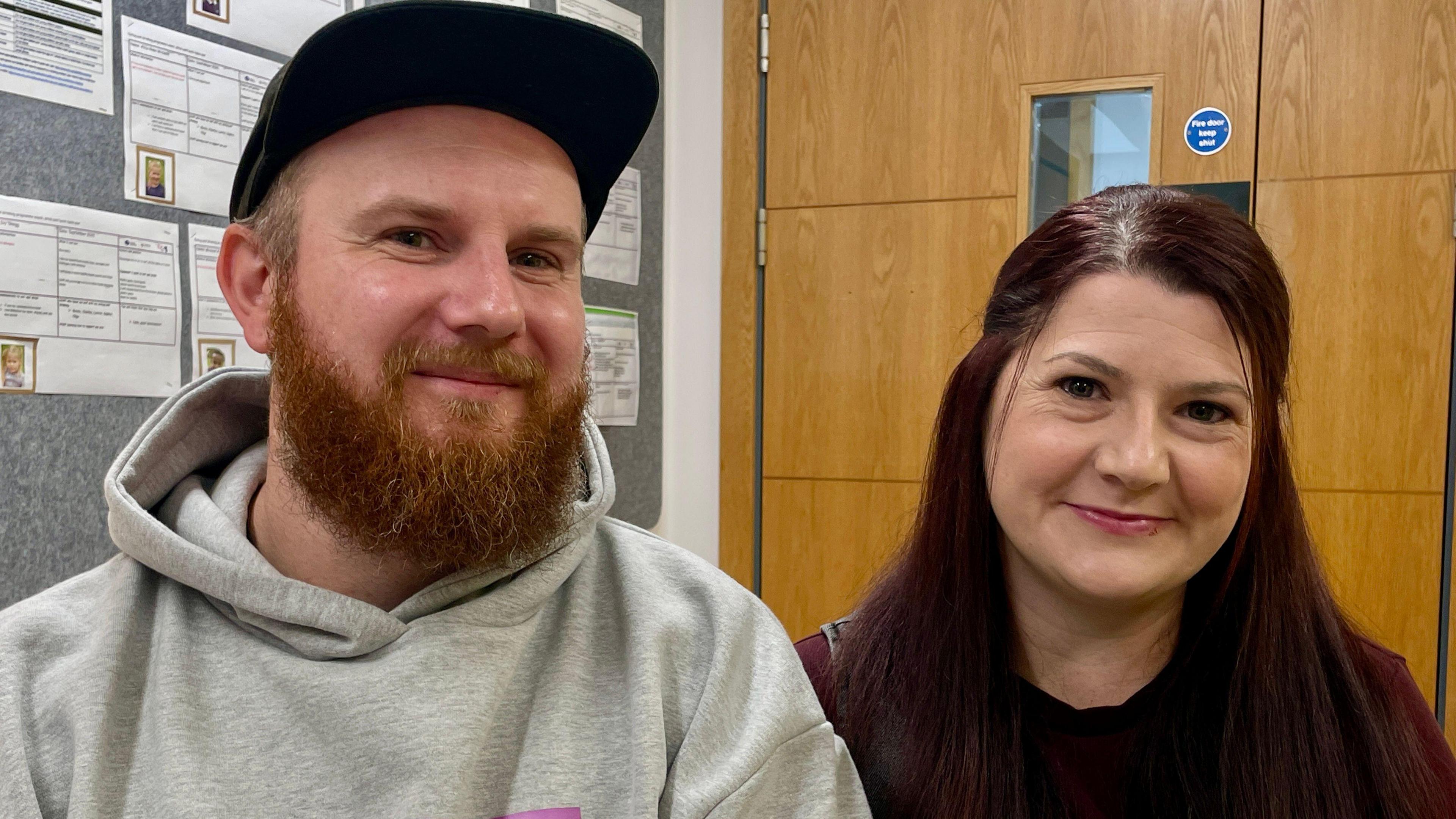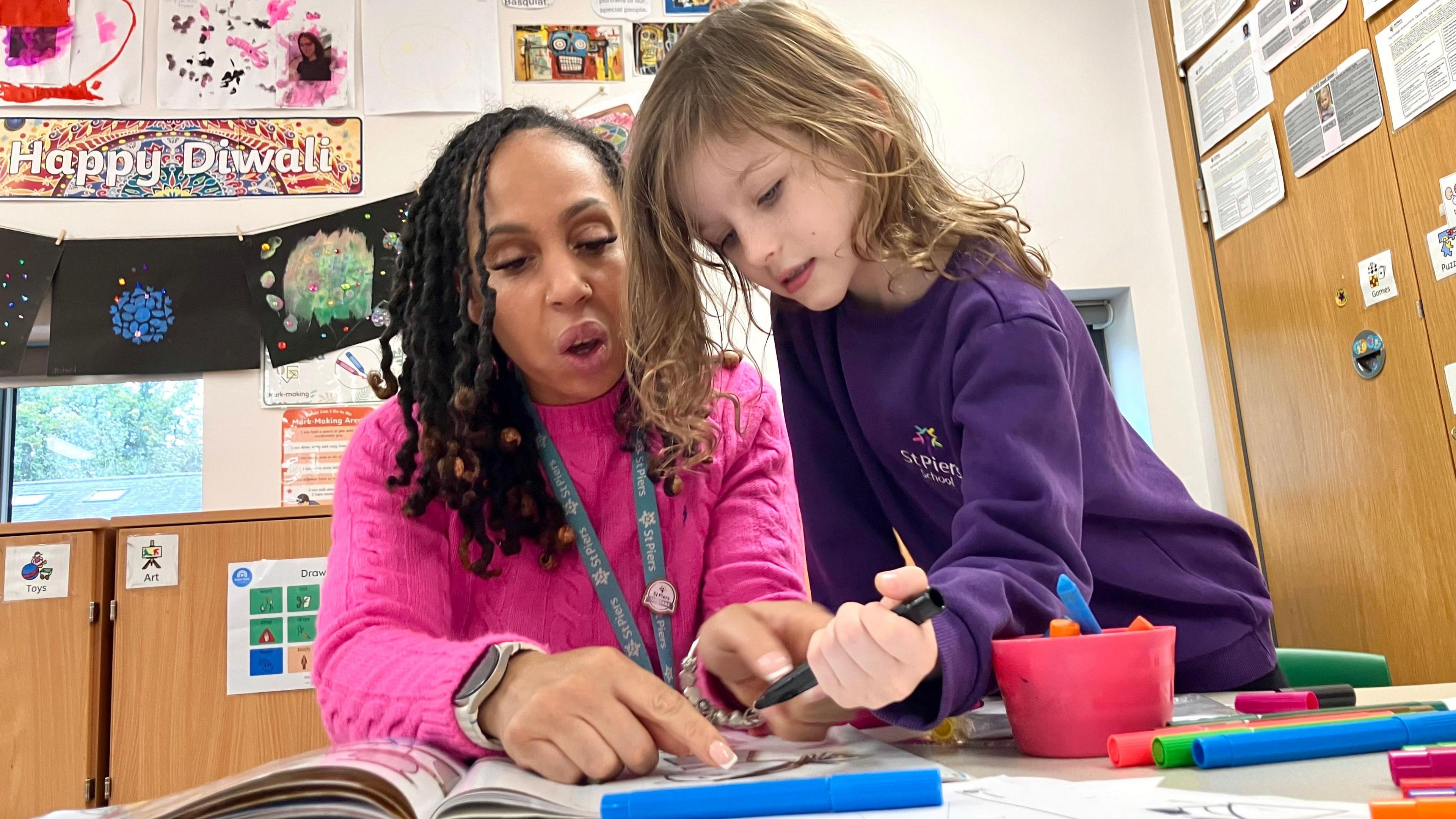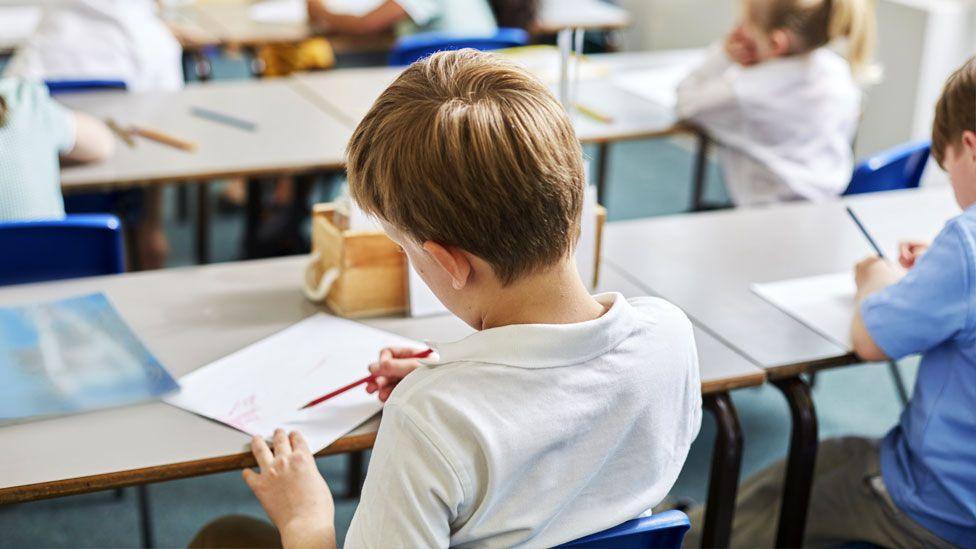Navigating Send provision is tough, say parents

- Published
Parents of children with special educational needs and disabilities (Send) have described how securing school places has been "like a full-time job".
"It's been a very long road and it's just really hard navigating it all," added Chloe Westbrook, whose son Frank started reception class at St Piers School in Lingfield, Surrey, in September.
The school opened a new reception class because of what it said was a critical shortage of specialist Send places for young children.
The government said it was making "already making progress" with increasing Send provision.
St Piers opened its reception class a year ago after previously only admitting children aged five and above from across Surrey and the wider south-east region.
The school, which offers 12 places in reception in addition to 80 places in it's primary school, is oversubscribed.
Head of admissions Sue Etheridge said: "We were seeing too many four-year-olds being placed in mainstream schools that simply couldn't meet their needs. We knew we had to act."
Ms Etheridge believes many younger children with Send had missed their first year of school or spent a year in a school that couldn't really meet their needs.
"It could have left them feeling frightened and distressed," she said.
"Maybe leaving their parents feeling like they'd failed their child.
"We wanted as many children as possible to start school in the right place from the get-go. It has a massive impact on outcomes and engagement with learning."

The Holliman's said their son Jaxon is completely safe and happy at St Piers
Abbie and Adam Holliman said their son Jaxon has settled into the school routine within a few weeks.
"He's safe and everyone else is safe," said Ms Holliman.
"He's not hurting anyone else and he's not hurting himself as much which is great."
"There's no quality of life for him at home. We can do what we can, but they need to be interacting and experiencing things, a school system that's ready for them and that's what St Piers provides."

St Piers School believes systemic change is needed in Send education
Many Send children can receive an education health and care (EHC) plan if they need more support than is available through special educational needs support.
The total number of EHC plans has increased each year since their introduction in 2014.
The UK government reported in June 2025 that the number of EHC plans increased to 638,700 in January 2025, 10.8% higher than at January 2024.
The number of requests for EHC assessments, has also increased, with 154,500 received in 2024,
Ms Etheridge believes there is a need for a national commitment to expanding specialist provision.
"Our new places have made a difference, but they barely scratch the surface of what's needed," she said.
"We're already taking applications for 2026 and 2027, which shows how far ahead families have to plan.
"We'll keep exploring ways to expand and evolve, but systemic change is essential."
A Department for Education spokesperson said that the government was providing "better training for teachers, £740 million for more specialist places, earlier intervention for speech and language needs, and SEND leads in every Best Start Family Hub."
Follow BBC Surrey on Facebook, external, on X, external. Send your story ideas to southeasttoday@bbc.co.uk , external or WhatsApp us on 08081 002250.
Related topics
Related stories
- Published14 November
